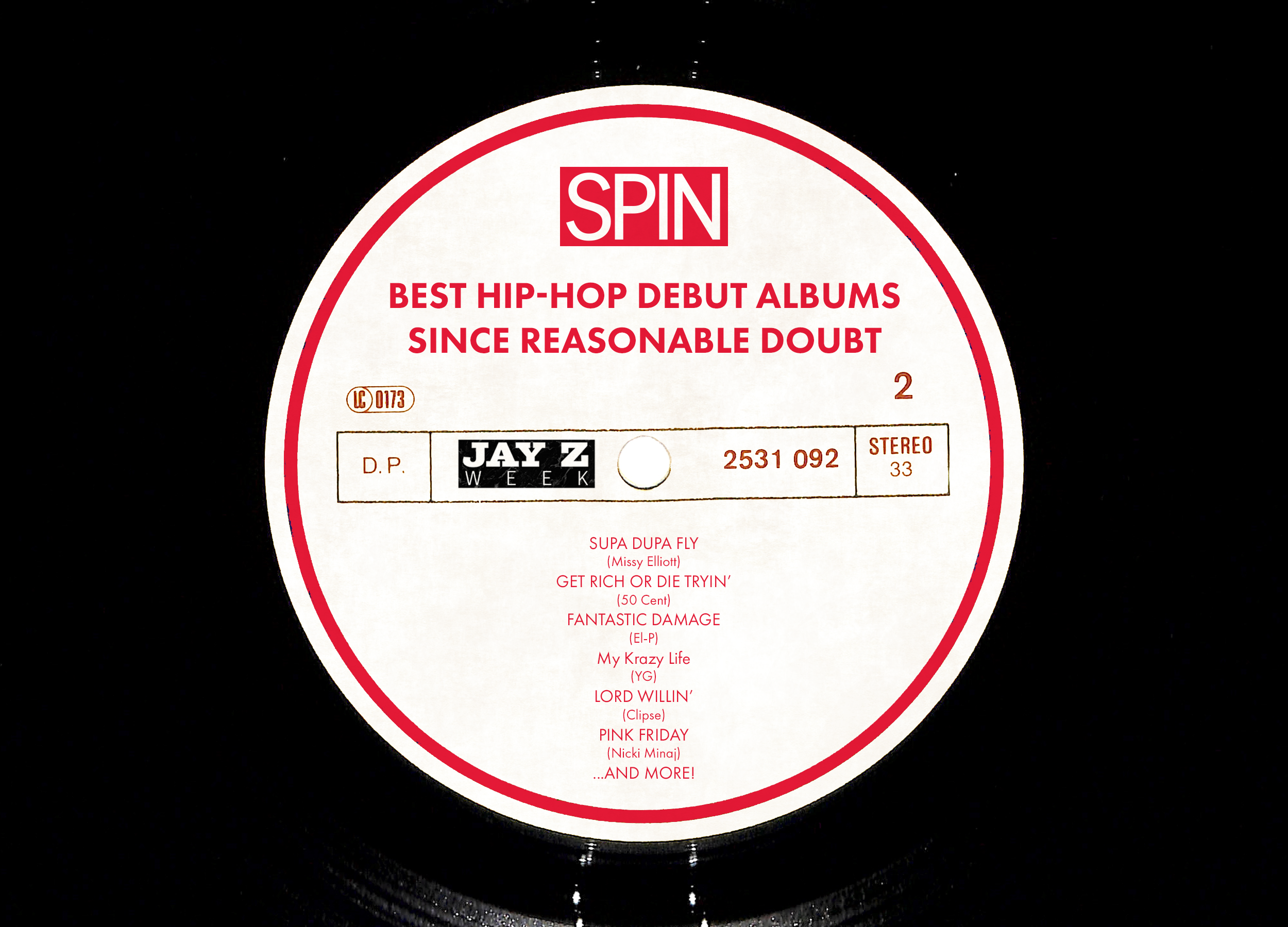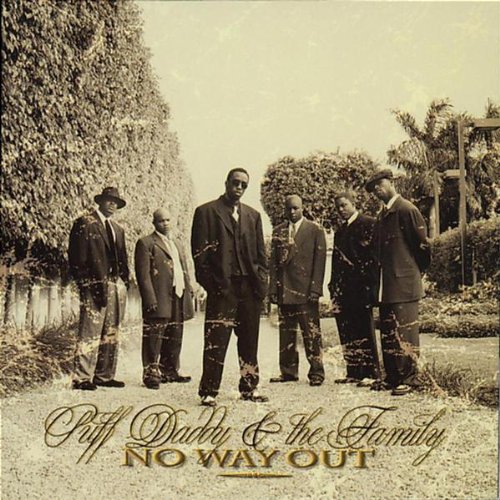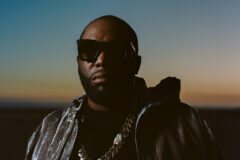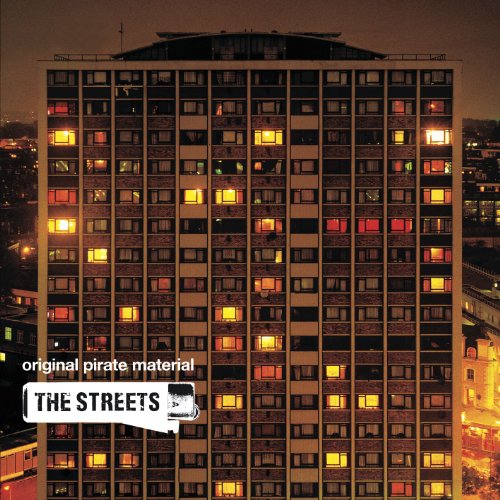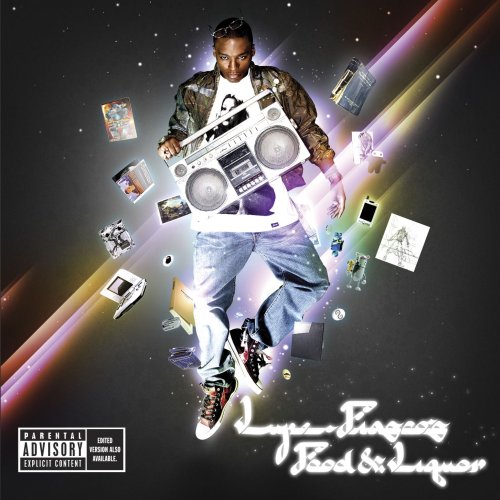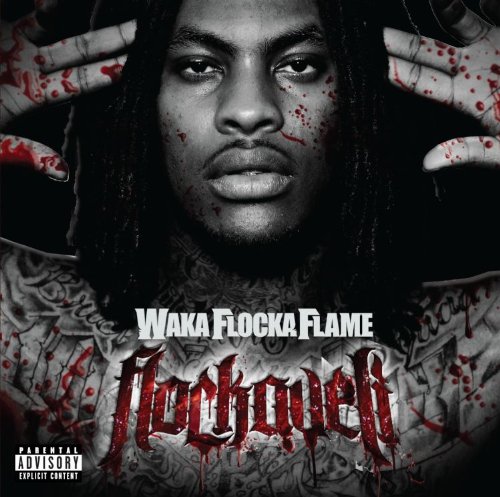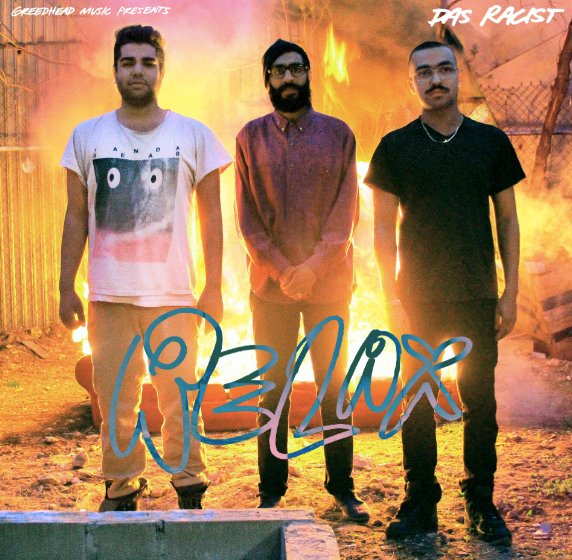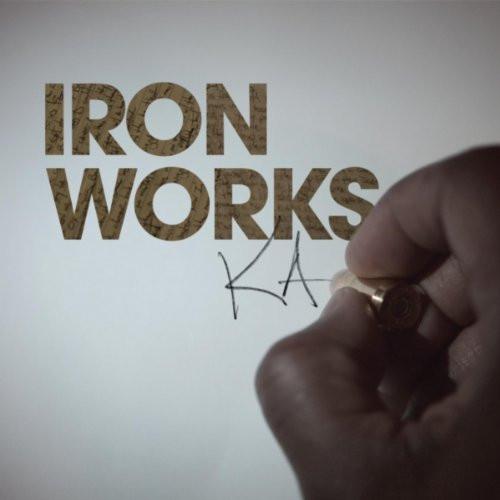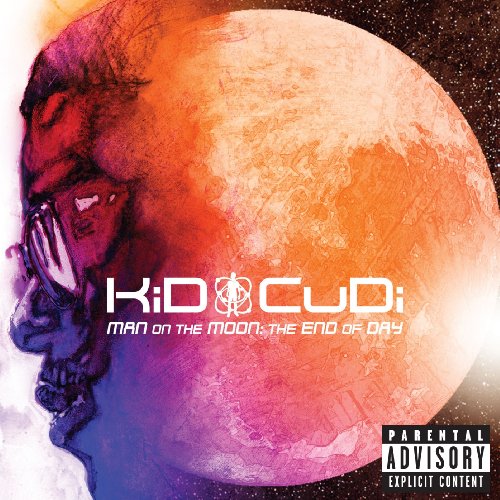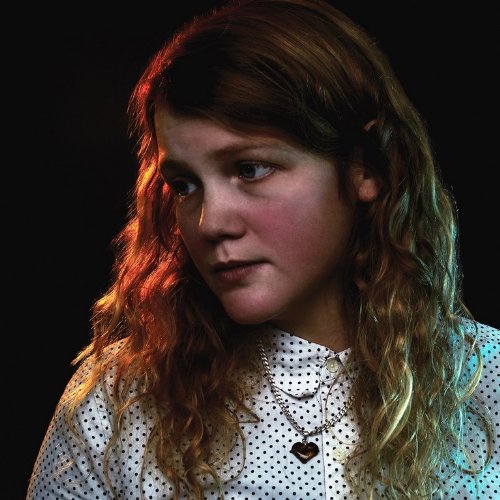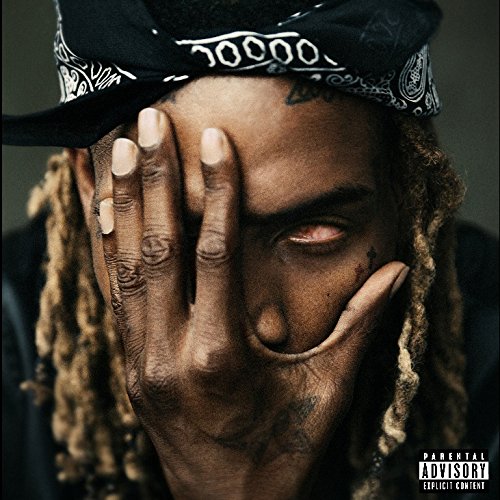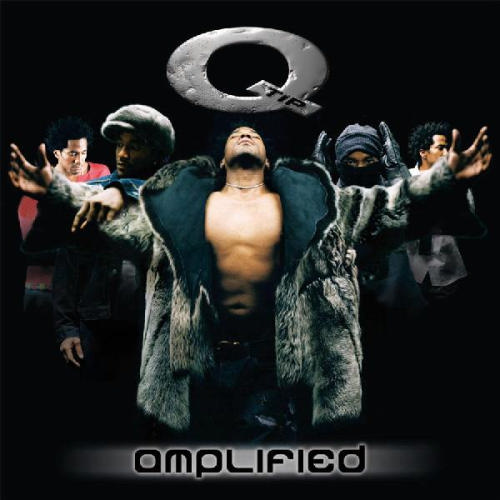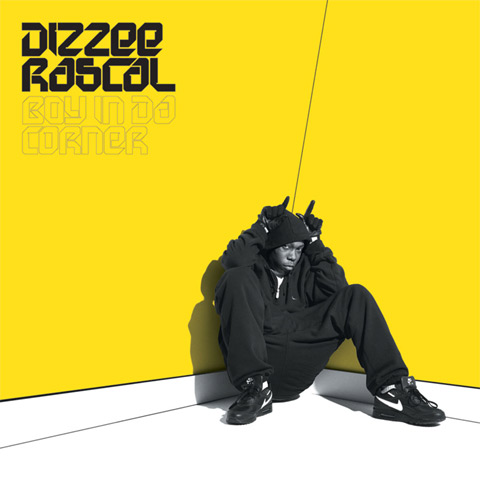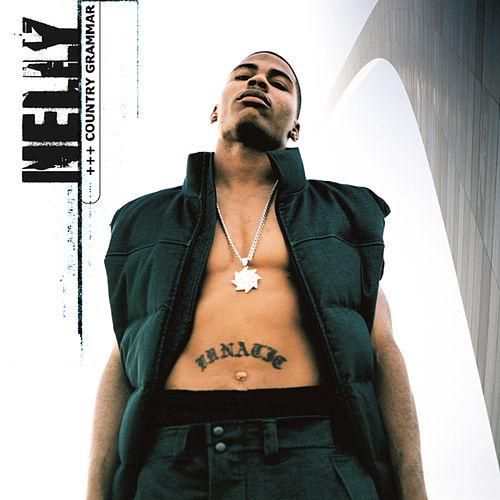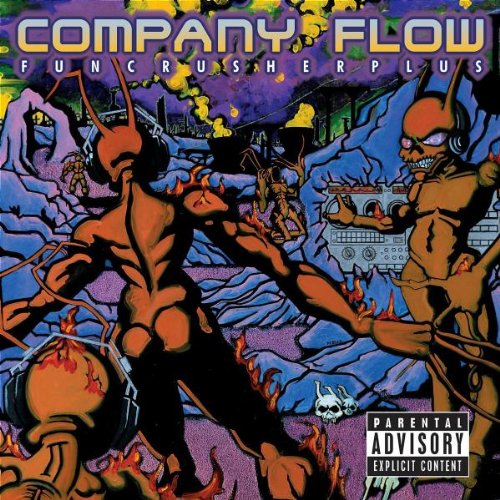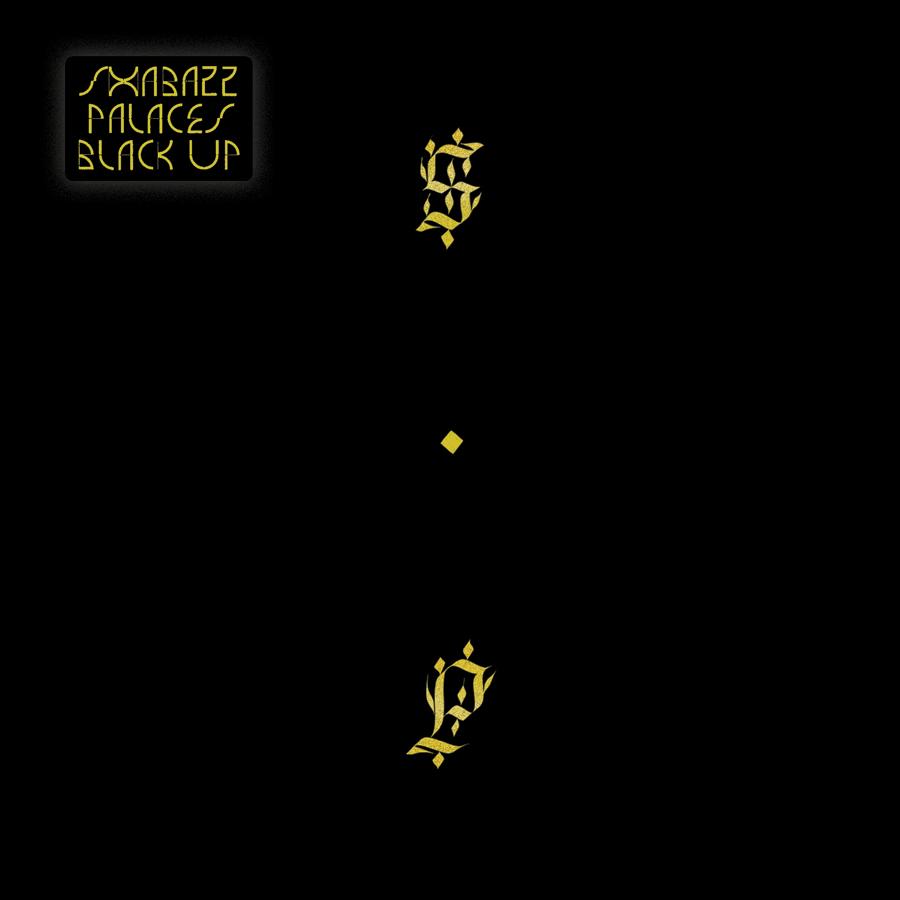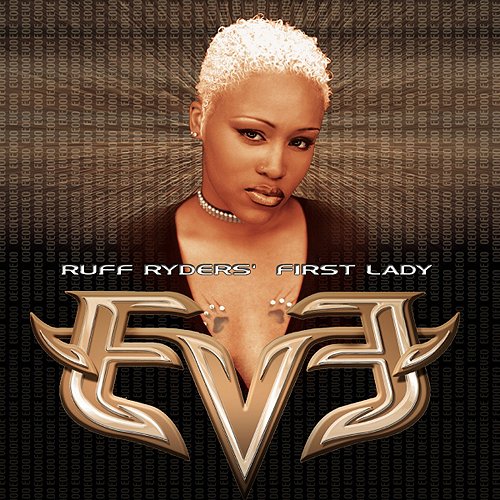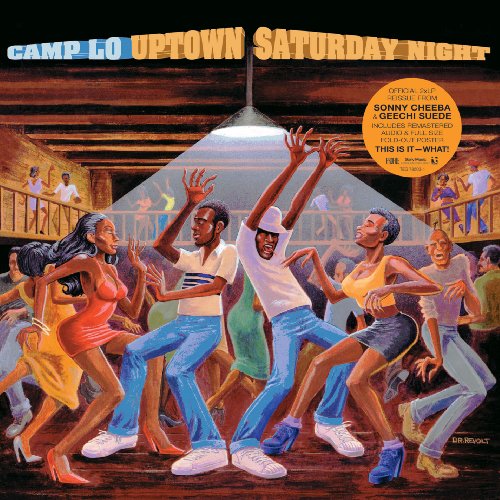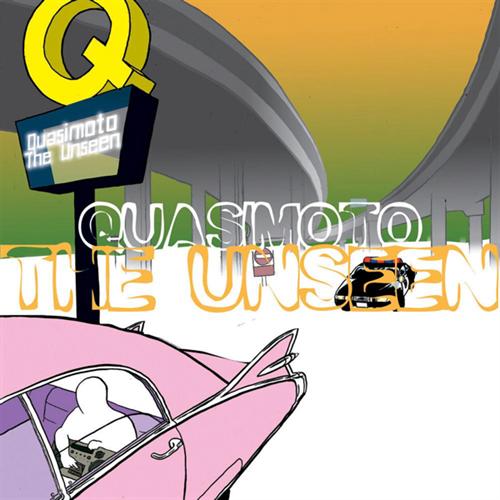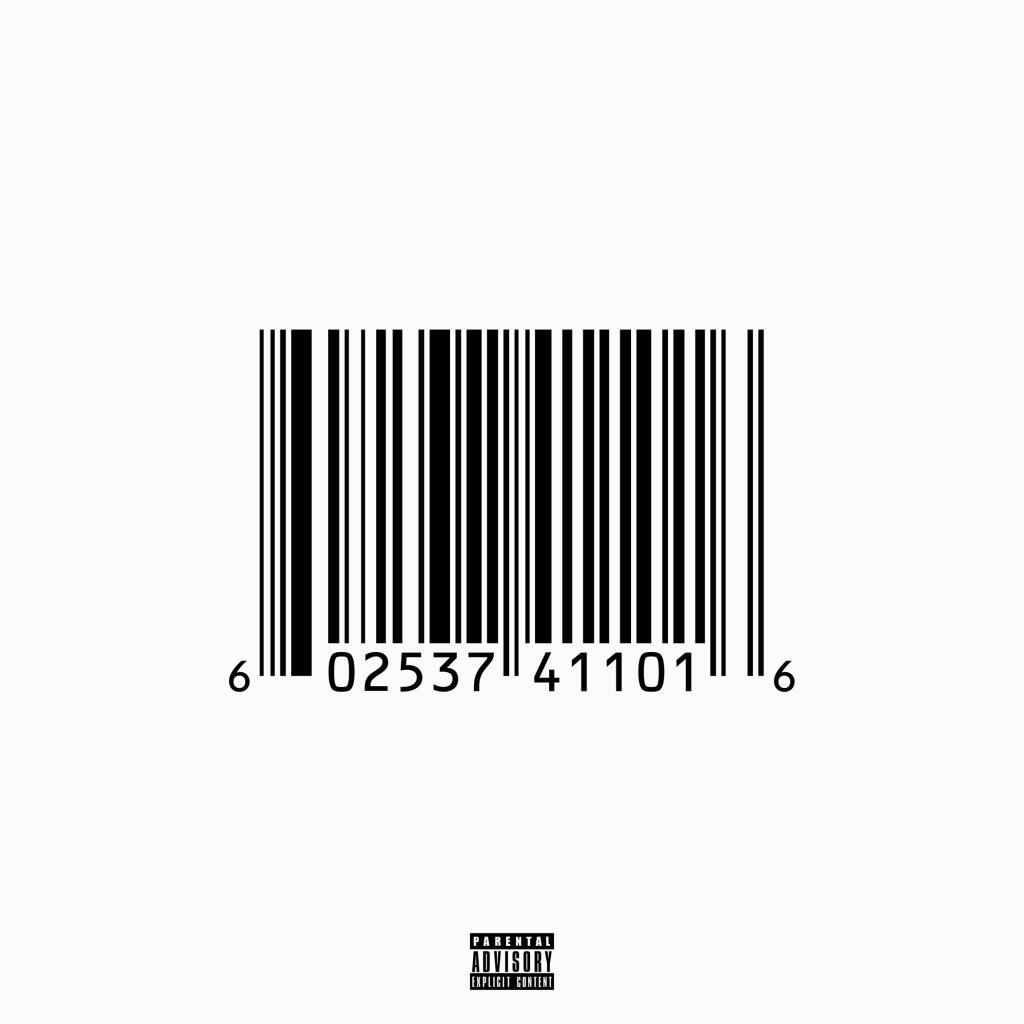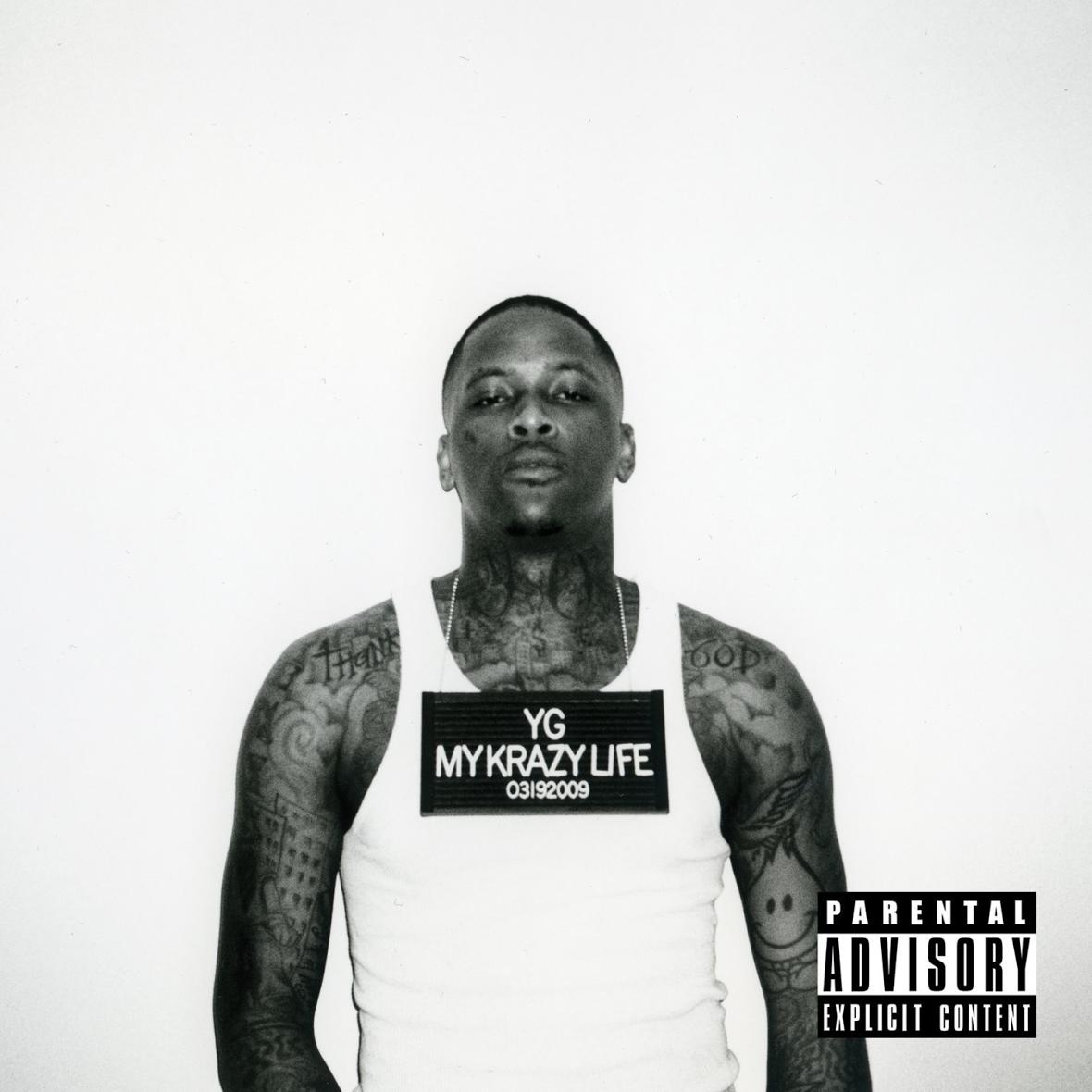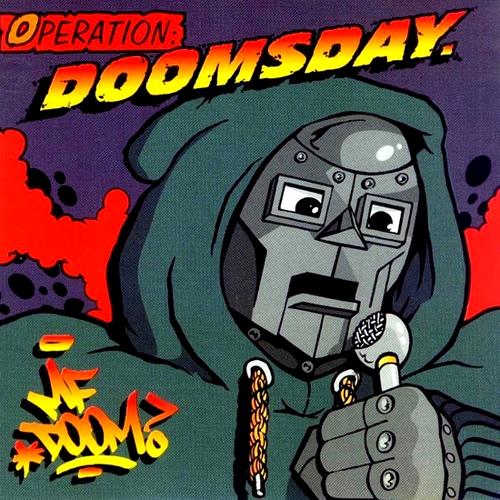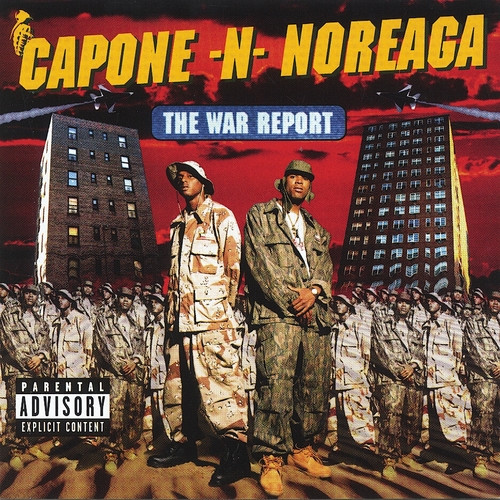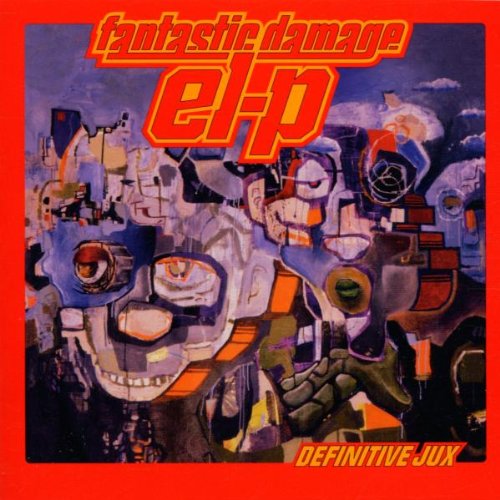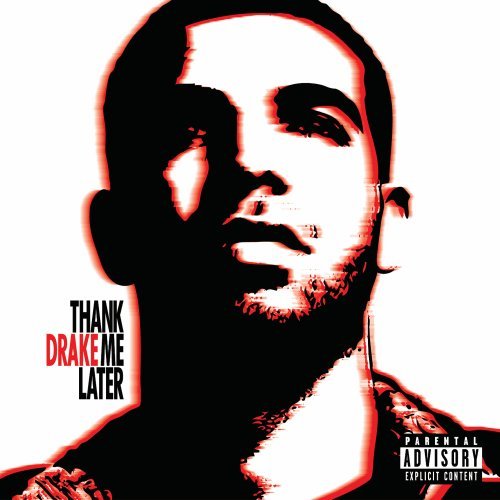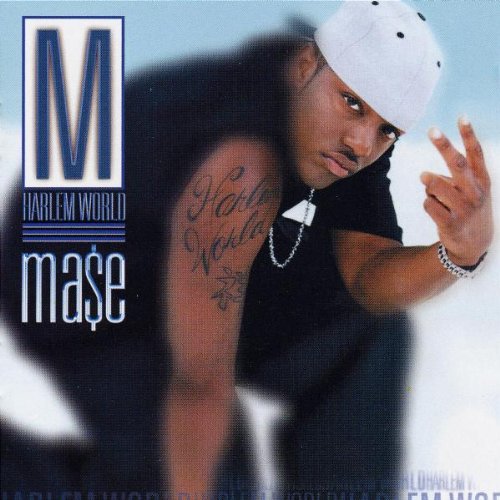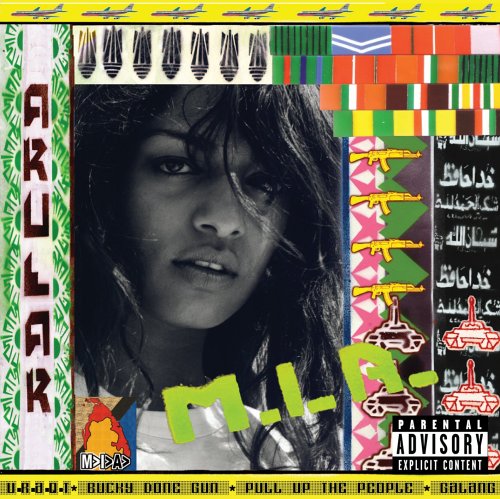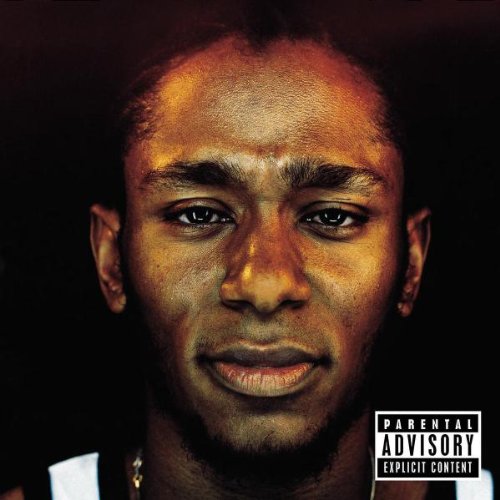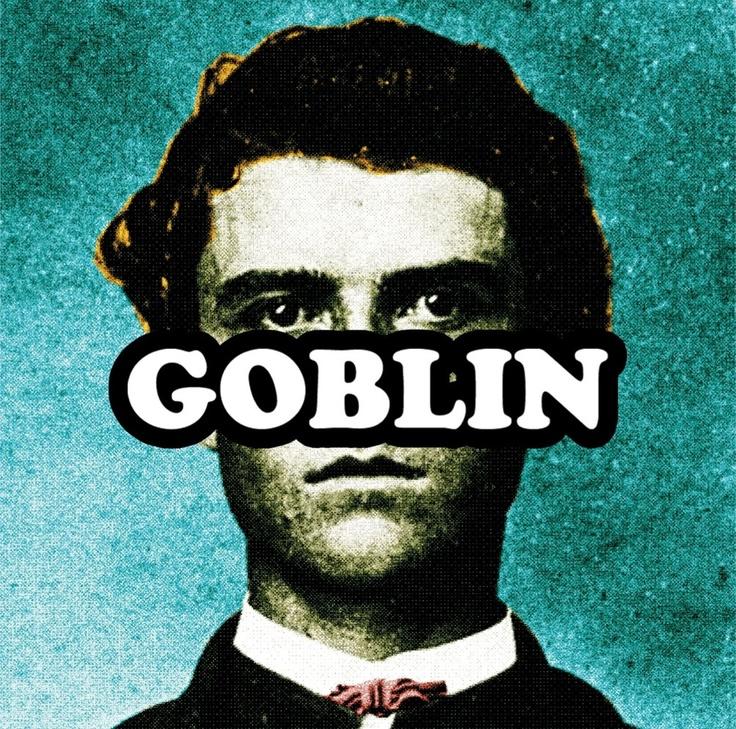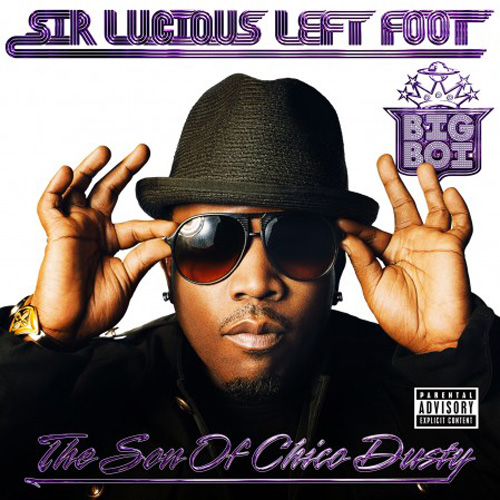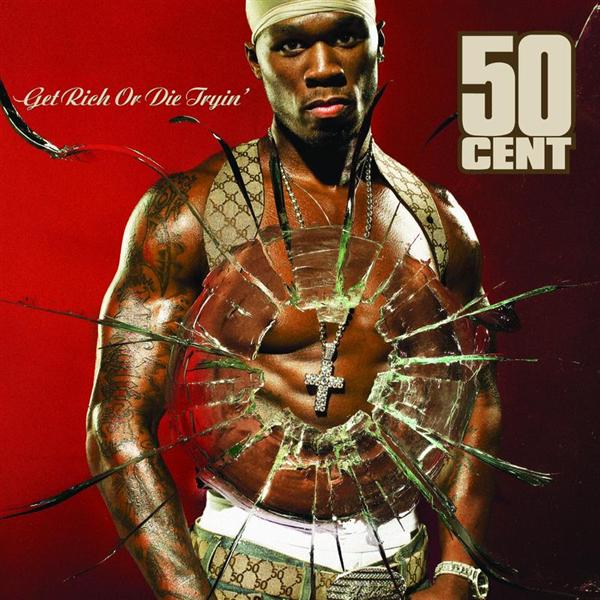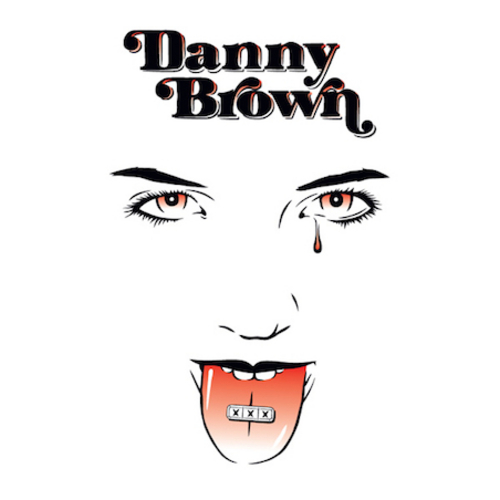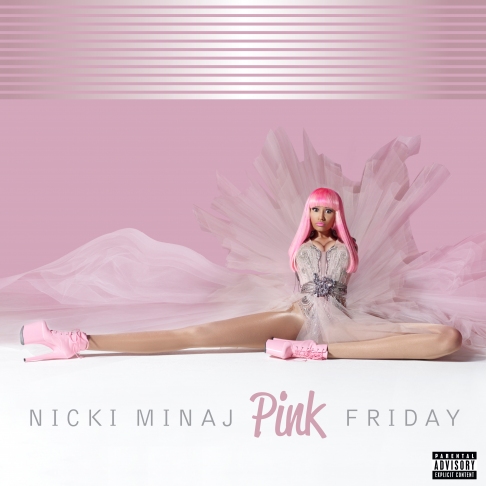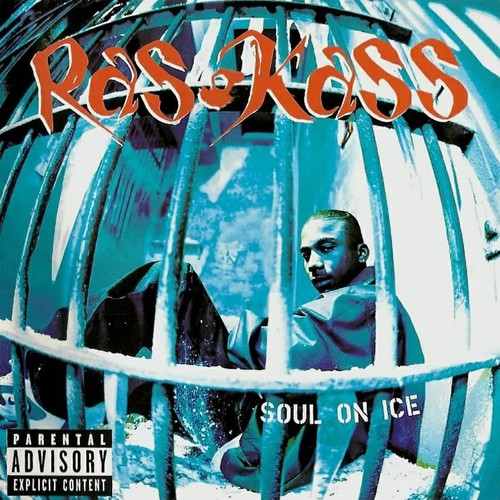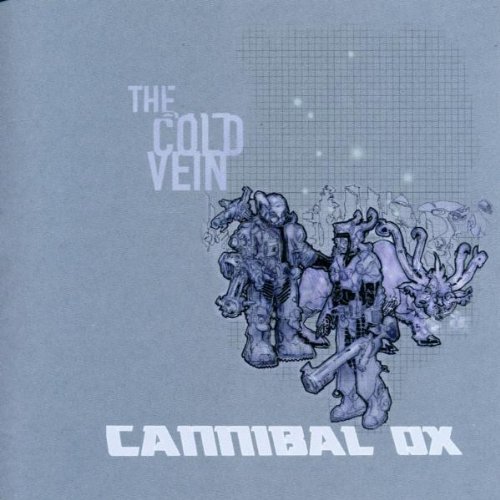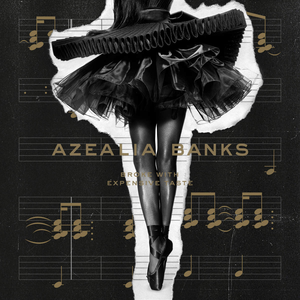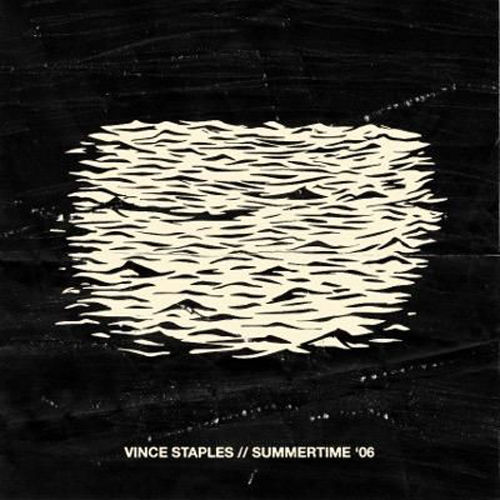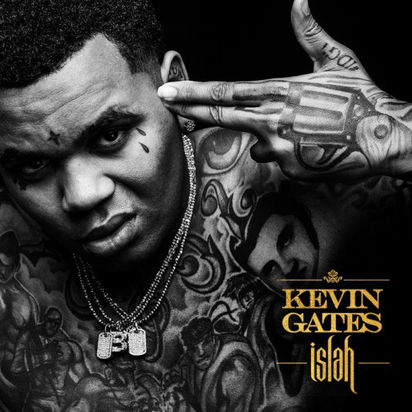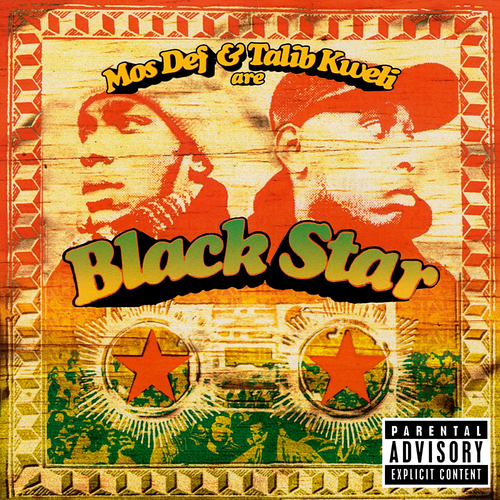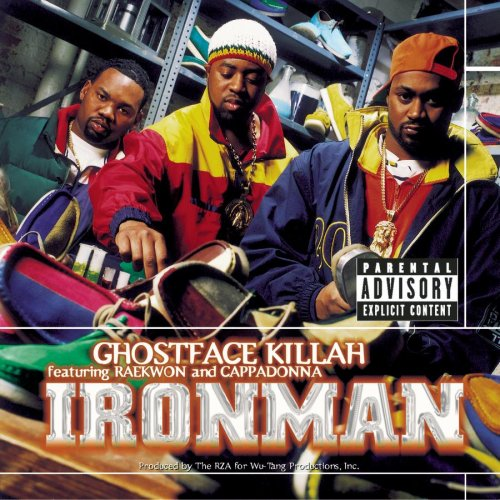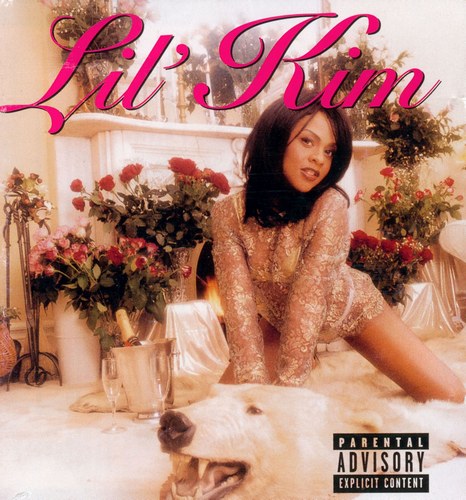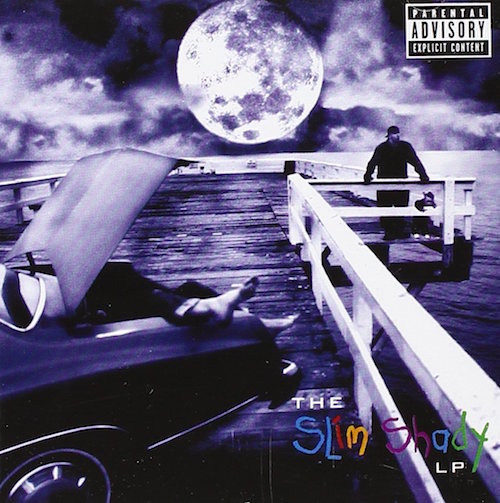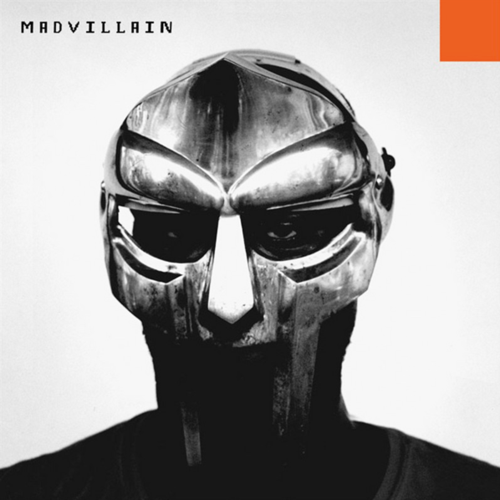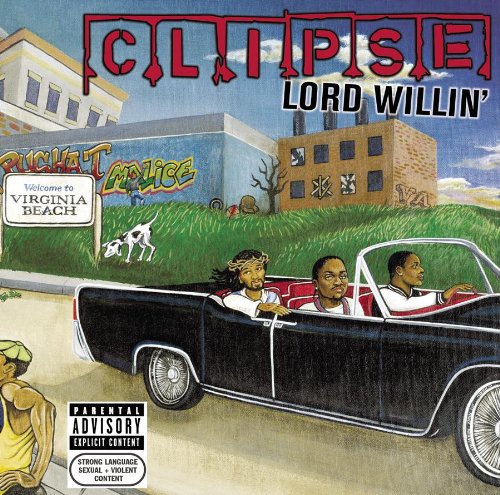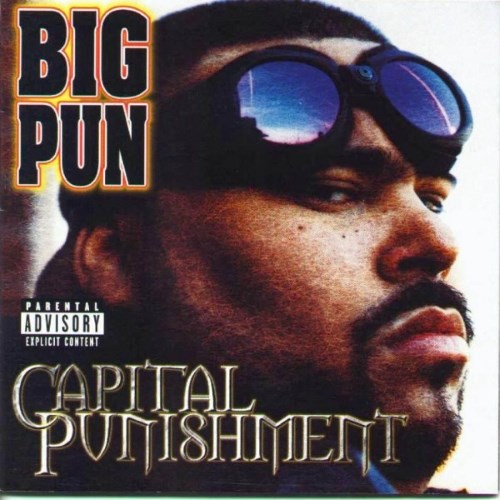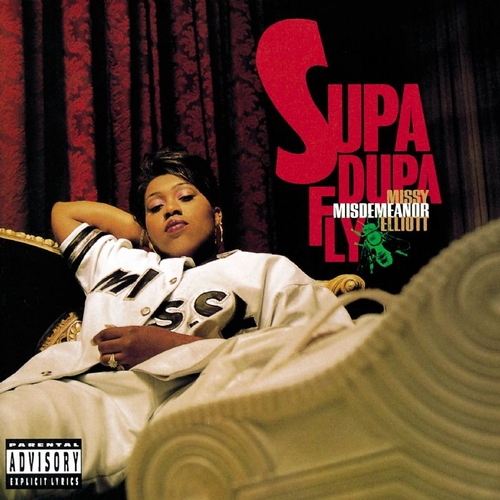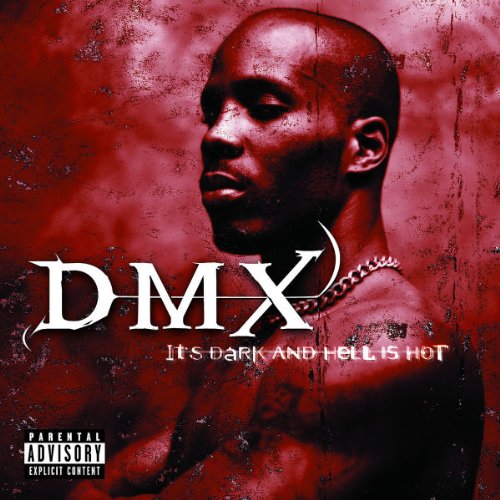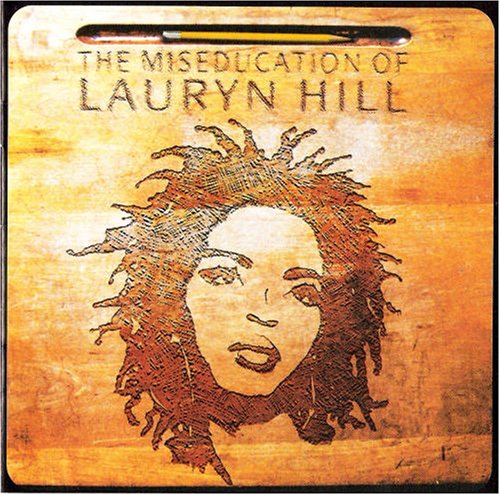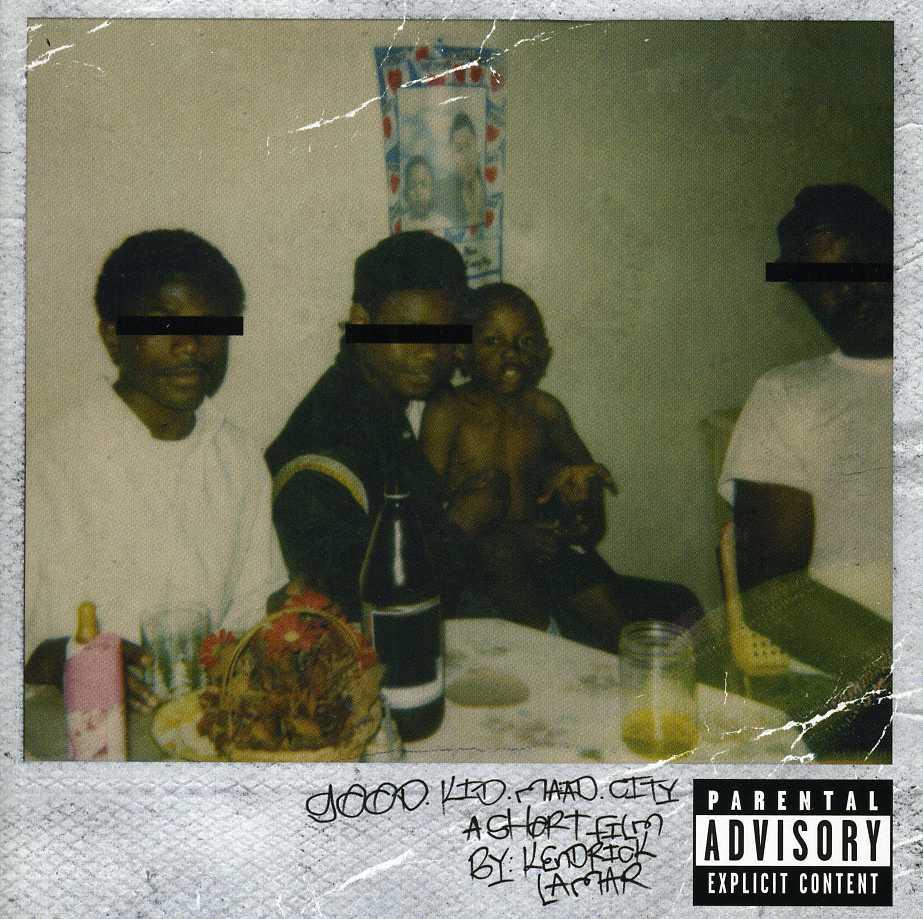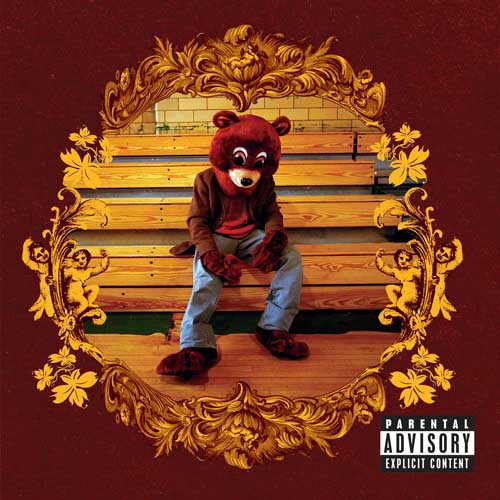In honor of the recent 20th anniversary of Jay Z’s debut album, Reasonable Doubt, we’re publishing a series of pieces looking at the rapper’s singular career and achievements. Welcome to Jay Z Week.
Twenty years ago, the man whose vision would closest match that of hip-hop’s world-conquering ambition released his first album. To conclude our Jay Z Week — and pay tribute to the ways the genre has grown and developed since his premiere — we’re counting down the 50 greatest rap debut LPs released since June 25, 1996: the day Jigga revealed his original blueprint. Major-label debuts only — no mixtapes and no independents, unless that’s all an artist has to their name to this point. Bring on the next 20 years.
50. Puff Daddy
No Way Out (1997)
One pop savant plays Jukebox Jury with his musical youth, becoming the first MC since Hammer whose audience actually swelled to fill the MJ-sized dimensions of his cross-platform megalomania. No one would ever confuse Puffy with Biggie or even Craig Mack on the mic, but don’t worry if he writes rhymes, he writes sample-clearance checks, and he spends wisely (if not modestly): pairing Matthew Wilder with Grandmaster Flash like they hung out on the same Bronx street corners in ’82, and unleashing Bill Conti’s “Going the Distance” for his Rocky moment where most half-steppers would’ve settled for “Gonna Fly Now.” Getting your hands on some Grants like Horace might not be hip-hop’s most noble pursuit, but No Way Out proved that in the late ’90s, the only thing that succeeded like success was excess. — ANDREW UNTERBERGER
49. The Streets
Original Pirate Material (2002)
This “45th-generation Roman” geezer who “can’t see past the end of [his] beer” arrived in time to bridge the gap between unnerved two-step beats and the U.K.’s then-fledgling grime scene. Mike Skinner’s occasionally spoken monologues pitched over sad-horn ska and upturned house pianos are like no one else’s to this day, and not even Slick Rick’s storytelling ever pulled so much profundity from the mundane: the “same Chinese takeaway,” completing Gran Turismo on the hardest setting, debating the merits of weed vs. booze, and, come to think of it, cult classic vs. bestseller. — DAN WEISS
48. Lupe Fiasco
Food & Liquor (2006)
All right, maybe Lupe Fiasco left his very best verses on his mixtapes, but Food & Liquor still proved the Chicago conscious torchbearer was as skilled a lyricist as he was the maker of breezy, infectious hits. His storytelling was crisp and poignant (check the parable of the zombie drug dealer on “The Cool”), as inner-city heartbreak blossomed into theme songs you could make your own (the melancholic skater anthem “Kick, Push”). More than ten years later, Food & Liquor stays the only Lupe LP where his rhymes are consistently teeming with life. Getting swallowed by label drama and witnessing his hometown friends disappear robbed him of that effervescence. — BRIAN JOSEPHS
47. Waka Flocka Flame
Flockaveli (2010)
Waka Flocka Flame’s Flockaveli was as much a debut (and triumph) for running mate/producer Lex Luger as it was for the top-billed Atlantan. It’s a tag-team effort constructed with a tireless series of bangers, all designed to drill directly into your skull. Flocka is most devastating in his use of those bulging synth horns, and his ballistic bellows carry on punk rock’s hard-edged, anti-establishment ethos. This is rap as mosh-pit kindling — heavy, forceful, and bludgeoning. Head-bangers about head shots. — SHELDON PEARCE
46. Das Racist
Relax (2011)
Of course they imploded — you thought these Marina Abramovi?-referencing bong-hitters could handle a career? We’re lucky enough we got an album; hell, we’re lucky we got the mixtapes. The main difference between this proper debut/swan song and those joke portfolios (2010’s Shut Up, Dude and Sit Down, Man) is that the sonics here are nuts: the vocoded-not-Auto-Tuned title utterance on “Relax,” the power-drilled “Bird Flu” squawks of “Michael Jackson,” the bhangra influence of Heems’ homeland on “Punjabi Song” and everywhere else. The other distinction is that every track was delivered with their most Taco-Bell-or-Pizza-Hut-eating grins to date, the kind that showed they couldn’t believe this all wasn’t a dream. Then they woke up. — D.W.
45. Ka
Iron Works (2008)
“I live by a raw code,” Ka testifies on “Iron Work,” the near-title track from his introductory album. Formerly affiliated with underground ‘90s crew Natural Elements, the now-fortysomething Brownsville native re-emerged in 2008 with a set of severe tales heavy on street-level detail and light on… well, not much. A full-time firefighter who moonlights as a hawk-eyed rap raconteur, Ka surrounds himself with minimalist, dolorous beats and graphite portraits of characters facing down hardscrabble circumstances, who’d prefer to keep their distance from outsiders. “This is where you work,” he tells a crooked cop on one song. “This is where I live.” — KYLE MCGOVERN
44. Kid Cudi
Man on the Moon: The End of the Day (2009)
After “Day N’ Nite” — a crossover smash whose nocturnal despair tut-tutted at the kids with eyeliner and LiveJournals who thought they were emo — rightly introduced him as a star, Kid Cudi pumped the breaks on his own success with debut Man on the Moon. The Kanye-exec-produced LP was undramatically somber, in a way that may have confused those hoping for a grand statement, but enraptured fans whose own pursuit of happiness was conducted under a similarly drug-addled pall. Cudi’s mainstream prospects shrank from there, but he was playing the long game, and Mr. Rager’s cult-legend rep was already moving up, up, and away. — A.U.
43. Kate Tempest
Everybody Down (2014)
“Everybody here has got a hyphenated second name,” slam poet Kate Tempest announces at the start of one of the most original and complex debut LPs in hip-hop history. It’s by no means a casual listen; the suffocating details of how waitress Becky and coke-dealer Harry get lost in the drug world make the Streets’ A Grand Don’t Come for Free look like “Crank That (Soulja Boy).” On the heated, buzzing “Stink,” they intertwine and rip apart: “How can I want to kiss you when all your lips say is how s**tty I am?” That’s just halfway through, and plot points only grow more dire from there. It’s the closest thing to a one-woman play that rap has yet seen. — D.W.
42. Fetty Wap
Fetty Wap (2015)
Not since The Cars back in ’78 has a self-titled debut spun off this many radio perennials without overstaying its welcome. Fetty Wap‘s premiere full-length should have been the clearest path to diminishing returns — a whopping 17 tracks with only two low-profile guests and not many more lyrical ideas. But the LP never fades in its near-kiddie energy and enthusiasm, with each song acting as its own playground ride: The rising synths in “Trap Queen” are the first jump from the top of the slide, the woozy “My Way” beat spins and entrances like a roundabout, the helium-inflated treble of “I’m Straight” bounds around the jungle gym and swings from the monkey bars. A year later, and the good times are still rolling. — A.U.
41. Q-Tip
Amplified (1999)
In all of rap history, is there anything funnier in hindsight than this solo debut, produced by a then-unknown Dilla, being remembered as a “sellout” move? Talk about a backpacker generation gap: Though it’s true that Q-Tip honed his poppiest instincts here (“Vivrant Thing”), he also dove into his weirdest rhythms (“Breathe and Stop”), flamenco leanings (“Do It”), and, yes, even the offbeat jazz that his former group brought on award tours all over the world (“Let’s Ride”). This time though, it was just the Tip. — D.W.
40. Young Jeezy
Let’s Get It: Thug Motivation 101 (2005)
There’s an ongoing debate regarding exactly when trap music emerged. Was it with UGK’s laid-back dope-game narratives in the 1990s? Was it with T.I., who brought the Muzik to the mainstream in the early 2000s? Strong cases to be made for both, but there’s no denying that the subgenre’s power was cemented when Jeezy (then going by Young Jeezy) dropped his glossy ode to southern hustlaz in 2005. At the time a flagship release for Def Jam South, Jeezy’s first album was a combination of bombast, swagger, and immaculate production that became a touchstone for Atlanta trap music’s first wave. Come and get it. — STEREO WILLIAMS
39. Dizzee Rascal
Boy in da Corner (2003)
Ten years after Ready to Die and five years after The Slim Shady LP, the most exciting new rapper to hit U.S. shores was once again a whip-smart young depressive who sometimes woke up wishing he could sleep forever. But even if Dizzee Rascal’s suicidal thoughts echoed B.I.G. and Em emotionally, they were a brand-new day musically — skeletal Halloween synths, beats that aspire to two-step but get winded around one-and-a-half, and Dizzee’s voice, a nagging London drawl of impudence and desperation. The scraped-knee sonics render Boy in da Corner too harsh to return to regularly, but “I Luv U” remains peerless as a Harmony Korine-style sketch of youth-gone-wild nihilism, “Hold Ya Mouf” creates more tension with its unlikely “I feel all right today / Let’s be friends” refrain than entire Gravediggaz LPs, and closer “Do It!” reveals Dizzee as hip-hop’s first worthy disciple of the Notorious M.O.Z. — A.U.
38. Nelly
Country Grammar (2000)
It was Jay Z who commanded “Bounce with me, bounce with me” on his late-’90s megahit, but it was the pride of St. Louis who took it to heart. There’s no other purpose to these 17 molasses-rubber bands of pre-Auto-Tune sing-rap than to make asses shift on their axis. “Country Grammar (Hot S**t)” turned rapping back into the playground rhyming it once was when it began, and “E.I.” introduced “andale andale mama” as a worthy entry in bubblegum’s great lexicon of ear-pleasing nonsense. The immensely satisfying pronunciation of “trying” as “chur-rye-in” on “Batter Up” might do you even better, over truly low-end organ that only Southerners can hear. Country Grammar showed why Nelly was one of the genre’s great sound architects. — D.W.
37. Company Flow
Funcrusher Plus (1997)
El-P rapped on the Fantastic Damage cut “Deep Space 9mm” that he’d “rather be mouth-f**ked by Nazis unconscious” than sign to Rawkus. It’s a brutal line, but even that couldn’t detract from the impact of Funcrusher Plus, Company Flow’s epochal contribution to the label. El-P, rapper Bigg Jus, and DJ Mr. Len teamed up for an album with its feet stubbornly planted in phantasmagoric boom-bap. Released during the shiny-suit era of New York rap, tracks like “8 Steps to Perfection” and “The Fire in Which You Burn” served as lyrically dense redoubts for those annoyed by the smirks and obvious samples of Puff Daddy & Co. Nearly two decades later, Funcrusher Plus’ battle-damaged raps still haven’t given way. — B.J.
36. Shabazz Palaces
Black Up (2011)
When Ishmael Butler, formerly of Digable Planets, re-emerged at the end of the 2000s, it was through cryptic transmissions from the woods in the northwest. Black Up took the world Butler and co-architect Tendai Maraire built with Shabazz Palaces’ first two mysterious, startlingly sharp EPs and gave it a pair of sly, grinning villains. “Are You… Can You… Were You? (Felt)” evokes ’97 Bad Boy brightness and torrential Seattle rain, ferrying you across the emotional chasm in between. But there’s no exaltation, just daps and head nods and two figures receding back into the shadows. — PAUL THOMPSON
35. Eve
Let There Be Eve… Ruff Ryders’ First Lady (1999)
Female rappers historically have dealt with more expectations to be everything to everyone, but Eve’s natural versatility is exactly why she’s great. On her brightly produced debut, she bounces off of the multivalent likes of Missy Elliott, Beanie Sigel, and DMX without breaking a sweat, despite the fact these vastly different artists require her to tongue-twist very differently in kind. But it’s her “realness,” that fabled state of being that’s demanded of anyone who isn’t Rick Ross, that elevates “Let’s Talk About” from a you-know-what-grinds-my-gears session, and “Love Is Blind” into hip-hop’s greatest (and most sisterly) indictment of domestic violence ever. Let her blow ya mind. — D.W.
34. Camp Lo
Uptown Saturday Night (1997)
Rapper-turned-producer Ski was on a roll in 1996 and ‘97. Months after landing four production credits on the go-getter bible that is Reasonable Doubt, Ski saw the release of Camp Lo’s Uptown Saturday Night, the album he recently described to SPIN as his “baby.” The beats are tight, channeling uptown grit and free-flowing Cris, but USN is ultimately the Bronx duo’s show. Cold shooter Geechi Suede plays dead-eyed straight man as the capricious Sonny Cheeba makes syllables stretch and bubble with the violence of boiling honey. The fact that Camp Lo stiffed on their follow-up is as much a tragedy as their debut’s slept-on status. — B.J.
33. Quasimoto
The Unseen (2000)
Because one alias wasn’t enough for Otis Jackson Jr., the beatsmith best known as Madlib dreamed up an extra alter ego: Quasimoto, a helium-sucking trickster with questionable ethics. Handing out poison apples, peeking up skirts, impaling people with pitchforks: It’s all fair game for Quas — and that’s only on the second track. But what this murderous Mxyzptlk lacks in heart, he makes up for in (De La) soul. Feasting on a diet of psilocybin mushrooms, dusted-off jazz treasures, and dogeared routines by Redd Foxx and Bill Cosby, Oxnard, California’s most adventurous loop digga concocted a psych-rap classic, an hourlong trip through his own consciousness that ends with every phony in his path pushing D.A.I.S.I.E.S. — K.M.
32. Pusha T
My Name Is My Name (2013)
Clipse fizzled out following 2009’s slick-and-subpar Til the Casket Drops, but VA’s top earner refused to leave his reputation in disrepair. Enter My Name Is My Name, a 12-track case file that revels in Pusha T’s dope-slinger persona with the same joie de vivre that Scorsese’s camera has snaking through the Copacabana. Unapologetic but plenty polished, King Push celebrates his birthday by moving a brick and flirts by offering to introduce a woman’s exes to his trusty semi-automatic. Our anti-hero dubbed a track “Suicide” and fit it with a Pharrell beat that pops like a debtor’s head stuck in a vise grip. Only thing that runs colder than Pusha’s flow is his blood. — K.M.
31. YG
My Krazy Life (2014)
Before he dropped his cinematic debut, YG was considered a ratchet rapper whose bangers were relegated to the club or car. Yet My Krazy Life showed that bicken back and bein’ bool was one of many speeds — he’d just been holding back on us. Also set in Compton (or, to be more accurate, Bompton), it’s a giddy, big-booty-bouncing counterpart to Kendrick Lamar’s grim, day-in-the-life diary, good kid m.A.A.d city. Though it might delight where K-Dot stresses, YG’s it-happened-to-me recounting shouldn’t be taken any less seriously. Guns and gangs populate both tales, but YG makes sure we know the sun shines south of Rosecrans, too. — REBECCA HAITHCOAT
30. MF Doom
Operation: Doomsday (1999)
For as much as MF Doom’s reputation is staked on mystery, the brilliant, schizophrenic Operation: Doomsday is remarkable for how much it reveals of underground legend-to-be Daniel Dumile’s psyche. Somber opener “Doomsday” is still one of his most staggering performances, especially the hook for his late brother, Subroc, who was fatally hit by a car while trying to cross the Long Island Expressway in 1993: “Ever since the womb / Till I’m back where my brother went / That’s what my tomb’ll say.” — P.T.
29. Capone-N-Noreaga
The War Report (1997)
Queens chameleon Noreaga has lived more lives than any other mythical figure, and he’s lived them all on wax. The War Report stands as one of the most important relics of New York’s second golden age for its unremitting naturalism and no-frills reportage from the ugly underbelly of the Giuliani years. See the plaintive “Stick You,” which doesn’t have a syllable or hi-hat that isn’t serving its stony purpose. At the precise moment when expensive, expansive hooks were sucking all the air out of the room, Capone-N-Noreaga doubled down on menace. — P.T.
28. El-P
Fantastic Damage (2002)
When it arrived early in the new millennium, El-P’s gloomy, retro-futurist debut weighed a dystopian forecast against a dystopian present. Across its 16 tracks, Fantastic Damage argued that the two would collapse into each other, that capitalism is a mechanism that rewards sociopathy, and thus would breed a planet full of degenerates. It’s apolitical as a political stance, averse to legalism (“Your cookie cutter laws contain flaws in philosophy”), consumerism, and typical social anxieties. His only real goal: “Kill the paradigm.” El Producto’s first LP is a long stare off into the void, a record that uses lo-fi buzz to mimic the pulse of existential dread. — S.P.
27. Drake
Thank Me Later (2010)
Thank Me Later set the tone for advance hype in 2010s hip-hop by cowering under the shadow of its own inevitable backlash — there’s a reason why Aubrey wasn’t exactly expecting C.O.D. with that title. Nevertheless, Drake was basically right about everything: right to leave “Best I Ever Had” in the past, right to lean into self-absorption from the very beginning, right to assume you can become the definitive rapper of your generation without rapping all (or even most) of the time. Some of Thank Me Later‘s high-profile guests and obvious radio singles feel intrusive in retrospect, but “Thank Me Now” set the tone for every great Drake-of-the-Union closer to follow, “I wish I wasn’t famous, I wish I was still in school / So that I could have you in my dorm room” remains both Drake’s most- and least-relatable line ever, and “I remember when you thought I was joking / Now I’m off singing karaoke” all but predicted “Hotline Bling.” He’s still waiting, y’know. — A.U.
26. Ma$e
Harlem World (1997)
As jiggy rap’s seminal work, Harlem World is one of the genre’s greatest relics, a prisoner of its time and the very specific conditions that created it: namely, the death of the Notorious B.I.G. in March of ‘97, the posthumous release of “Mo Money Mo Problems” (and its classic video), and the success of Puff Daddy & the Family’s No Way Out months later. Ma$e rapped with a devilish smirk through bouncy cadences that brought a certain glee to his flashy rap refinery, which dressed boasts with a candy varnish. He hit everything from “Cancun to Grant’s tomb,” his dress code boasted baguettes in his Rolls, and he had TVs all up in the headrests of his red Lexus. It isn’t the first record constructed entirely on braggadocio — and definitely not the greatest — but it is the slickest. — S.P.
25. M.I.A.
Arular (2004)
Full of skittery rhythms, frenetic snares, coronation trumpets, steel drums, and revolutionary, double-dog-dare-you-to-f**k-with-me lyrics, M.I.A.’s firstborn rebel demanded attention. (It’s named for her dad, a former member of a Sri Lankan militant group. He asked her to change the title. She did not oblige.) “London, quieten down, I need to make a sound,” she chanted before producers Diplo and Wizard sprayed machine-gun funk all over “Bucky Done Gun,” shutting everybody up. And once she had the mic, she knew exactly what to do, slipping right into the pocket, flinging firecrackers like “10 Dollar” and “Bingo” into the air and starting a revolution of her own. — R.H.
24. Mos Def
Black on Both Sides (1999)
In 1998, Mos Def had made a name for himself as one-half of the acclaimed duo Black Star with Talib Kweli, but the man now known as Yasiin Bey perfected his own individual voice the following year, via his nuanced, introspective, and topical solo debut. Both rappers were equally informed by the artsy aesthetic of the Native Tongues and the socio-political slant of KRS-One, and Kweli established himself as the verbose Brooklyn intellectual. Meanwhile, Mos emerged as the everyman of rap’s more cerebral side, and helped announce that left-field hip-hop still had a place on the East Coast as the new millennium loomed. — S.W.
23. Tyler, the Creator
Goblin (2011)
One listen into Goblin, any fears that Tyler, the Creator represented anything close the inexorable downfall of Western Civilization were instantly allayed — kid was too goddamn smart for that. Axl Rose and Eminem were terrifying because it wasn’t obvious how much they understood where their songs ended and reality began, but Tyler was the rare tortured young rock star who could already start to see his own way out. Sure, that path winded through rape fantasies, celebrity murders, and some words that Tyler should’ve long deleted from his vocab, but tornadoes of violence and ugliness like “Yonkers” and “Her” were most exciting because it was clear that within a year, he’d be on the VMAs revealing that his true message was always just “You can do anything you set your mind to, man.” — A.U.
22. Big Boi
Sir Lucious Left Foot: The Son of Chico Dusty (2010)
Who knew that it was Big Boi, and not his partner, the talented recluse André 3000, who had an expansive, eclectic, and wildly imaginative debut album in him? Well, anyone who’d paid close attention to the funk jukebox that was 2003’s Speakerboxxx, for starters. A well-balanced marvel of cheeky, tightly wound raps atop beds of swallowing bass, Sir Lucious Left Foot: The Son of Chico Dusty gave credence to a decade of great Big Boi verses that went underappreciated due to their proximity to André’s. Masterfully blending style and experimentation, the album finds Big Boi at his most technical and most charming, utilizing a remarkably elastic flow to careen in and out of productions across a soul-electronic matrix. It’s a clear and decisive reminder that the OutKast catalog is the byproduct of two elite creatives. — S.P.
21. 50 Cent
Get Rich or Die Tryin’ (2003)
50 Cent set the template for how to build a rap superstar in the internet age. On the heels of mixtape appearances and scathing underground diss tracks (like 1999’s “Your Life’s On the Line,” his dismantling of Ja Rule), Fiddy emerged under the wings of Eminem and Dr. Dre with a can’t-look-away backstory (raised by drug dealer parents, shot nine times just as his star was rising), an unmistakable mumble-mouthed flow, and some of the most pristine and melodic production ever boasted by a street-rap album. His debut was an ode to hustlers everywhere, with enough radio hits (like the pervasive “In Da Club,” and the Nate Dogg-assisted love song “21 Questions”) to ensure that no one could escape 50 in ‘03. One of the last rap CDs that could truly be considered a blockbuster. — S.W.
20. Danny Brown
XXX (2011)
It may cause some harrumphing that The Hybrid is technically Brown’s debut LP, but Infinite isn’t what comes to mind when you think of Eminem’s intro — you see Marshall in that Carson wig. But the virtually flawless XXX, repackaged to the world by tastemaking label Fool’s Gold, is the reason you know who the Adderall Admiral is. His one-of-a-kind delivery — like an incredulous B-Real — is almost always referencing oral sex, and strewn with tiny internal brags like “So many lines you can bar-code it.” There’s no difference between the list of bangers and the track list proper: “Monopoly,” “Outer Space,” “Blunt After Blunt,” “I Will,” etc. And the finale is an unexpected turn toward the intense: the self-explanatory Detroit narrative “Scrap or Die” and the stress meltdown “30,” which don’t negate the earlier ridiculousness of “I’m a mother**kin mother**ker / F**kin’ on your mother with two rubbers.” — D.W.
19. Nicki Minaj
Pink Friday (2010)
Thanks to scene-B&E’ing supporting turns on Kanye’s “Monster” and Young Money’s “Bedrock,” Nicki Minaj was already a star by the time of her 2010 debut album. But Nicki wasn’t Jasmine, she was Aladdin, and Pink Friday proved she’d never have to be anyone’s love interest but her own. Early criticism focused on the LP’s obvious Top 40 ambitions (invoked via recycled ’80s smashes by Simple Minds, Annie Lennox, and the Buggles), but mega-pop largesse and freestyle rawness was never a paper-or-plastic proposition with Onika. Those who wished the old Nicki would call back would soon have to acknowledge that Her Minajesty’s decathlete versatility and gravitational pull could never be contained to the mixtape circuit, and remaining haters were free to continue killing themselves. — A.U.
18. Ras Kass
Soul on Ice (1996)
You have to think that if the label politics broke a different way, Ras Kass would be headlining Rock the Bells and prepping that Soul on Ice 20th anniversary tour. As it stands, the Watts native’s debut showcased the technical chops that were en vogue on the opposite coast, with the instinctual funk that runs through southern California. (Then, of course, there’s the improbably glossy “Miami Life.”) Even though Kass spent what should have been his creative peak dodging the law and record-industry red tape, Soul on Ice survives as a cult classic. — P.T.
17. Future
Pluto (2012)
Before Future’s heart got broken and he submerged his music in a murky double cup and started repping for low-lifes, he was a starry-eyed, street-wise Romeo — and his debut, Pluto, is bursting with soaring odes sung full-out in his strangled voice to would-be paramours. Boosted by songs like the heart-pounding “Straight Up” and the best love song of the decade thus far, the sparkly “Turn on the Lights,” Pluto still sends us to the moon. — R.H.
16. Cannibal Ox
The Cold Vein (2001)
We’ve heard avant-garde El-P (Fantastic Damage) and pugilistic El-P (Run the Jewels). The Cold Vein was one of the few projects where his production found a balance between those two sides — and thank the guardians of Valhalla that he had two capable MCs rapping over those beats. Harlem linguists Vast Aire and Vordul Mega guided Jaime Meline’s soundscapes with dexterous rhyming ability, turning in one of the millennium’s most vivid encapsulations of New York. All throughout The Cold Vein, overlooked street-corner tragedies and eroding fantasies are projected with poetic verisimilitude. (Vast Aire’s encounter with the 12-year-old stick up kid and the eulogizing closer stand out among the record’s 15 tracks.) But it’s opener “Iron Galaxy” that towers as one of the duo’s peak achievements: Backed by production that wills hidden mists onto Lexington Avenue, the Can Ox trade bars as scathing as heated Crisco: “Boy meets world, of course his pops is gone, what you figure? / That chalky outline on the ground is a father figure?” — B.J.
15. Azealia Banks
Broke With Expensive Taste (2014)
Stardom attracts narcissists, it’s true, and there are still worse things to be. And no one says that Azealia Banks doesn’t put her mouth where her asshole is, slicing and dicing her syllables with the impressive precision of a Benihana chef. Yes, we wish those were easier to follow and that her social-media posts could be so blurry instead. But it’s a wild ride following not just her lips but her ears, which have consistently selected Latin-tinged shuffles like “Gimme a Chance” and “Miss Camaraderie” as backdrops that make up a virtually unchallenged hip-house niche in the 2010s. Unlike Nicki Minaj, Banks’ singing is viewed as an uncontroversial boon, with melodic passages on “Soda” (is that a Disintegration Loops-sampling intro?) and “Ice Princess” (shame isn’t her strong suit) as undeniable highlights. And crass as it is, she reprised the salacious marvel “212” even though its home is YouTube, not this album or the preceding 1991 EP. But she wasn’t wrong; if you made your Nevermind, you’d include your “Smells Like Teen Spirit” too. — D.W.
14. Vince Staples
Summertime ’06 (2015)
Buy into the overriding concept or don’t — the observations contained within Vince Staples’ debut succeed either way. “Get Paid” visualizes an extremist take on street-level capitalism (“Lemme tell you what the OGs told us / Money over bitches, keep your head on your shoulders”). The Long Beach rapper’s high-pitched venom emboldens an already claustrophobic “Señorita” (“Nigga caught one case and I heard he told / Snitch get a full clip and closed casket”). Summertime ’06’s strength comes from its visceral look at how a generations-old cycle of violence and poverty brutalizes young men, regardless of their dreams. Search no further than the disaffection that hangs over “Summertime”: “My feelings told me love is real / But feelings known to get you killed.” Staples explains on “Señorita” that he’s trying to paint you a picture, and it’s the concussive production and laser-focused lyrics that reveal just how ugly that picture is. — B.J.
13. Kevin Gates
Islah (2016)
The gall of this guy. Kevin Gates has the nerve to crash a year already choking on big-budget rap records and outmaneuver virtually all of the competition with an album as assured and involving as you’d expect from someone who’s got an obsessive mixtape following. Even better, he doesn’t even bother to roll deep for his major-label debut: The bonus “Jam” aside, there isn’t a single guest verse to be found. But who needs a supporting cast when you’ve got such a multi-faceted lead? Baton Rouge’s best is the reluctant poster-boy for booty-eating and also a lovestruck softie who can only get hard for that special someone; he’s got an ear for priceless melodies and a mouth full of diamonds; he’s a doting father but has his own secret family plan, reserving one phone for the ladies and one for the dough. It might be the newest entry on this list, but Islah has guaranteed Gates a place at the table — a rapper-singer who once identified with the doomed Luca Brasi now sits shoulder-to-shoulder with the genre’s dons. Really really. — K.M.
12. Black Star
Mos Def & Talib Kweli Are Black Star (1998)
Could’ve been called Beware the Throne. A mind-meld for the ages, Mos Def & Talib Kweli Are Black Star arrived in the fall of ‘98, when its co-stars were on the come-up and hip-hop itself was facing an existential crisis: The soil atop Tupac and Biggie was still fresh, Jay Z was chasing chart success, and Puff Daddy was busy stacking Benjamins. Steeling themselves with bare-knuckle beats and strong-jawed rhythms, Def and Kweli sprint through considered rhymes that cast a condemning eye at the gun violence (“Definition”) and money-hungry beat-jacking (“Children’s Story”) that loomed over the genre. Both MCs have since built their own bodies of work, but this record remains the sole LP credited to Black Star, a fact that no doubt reinforces its stature. The closer’s named “Twice Inna Lifetime,” but statements this sturdy and insightful only come around once. — K.M.
11. Ghostface Killah
Ironman (1996)
Enter the Wu-Tang: 36 Chambers is more concise. Cuban Linx is more cinematic. Liquid Swords better represents that intersection of nerdy curiosity and pure menace that made the Shaolin pioneers so lethal. But Ironman is the album from the Wu-Tang Clan’s initial, canonical run that plays like the scrolls of a lost language. (If any Wu-affiliated record pushes English’s boundaries more, it’s Ghost’s own follow-up, Supreme Clientele.) Rae is back for the re-up, Cappadonna is fleshing out his origin story. Ghostface doesn’t offer to translate: He’s trafficking in unhinged rage (“Wildflower”) and two-take earring heists (“Box in Hand”). This is the blueprint for rap’s most singular writer. — P.T.
10. Lil’ Kim
Hard Core (1996)
Just think for a minute about the implications of the first line Lil’ Kim spits on her debut: “I used to be scared of the dick.” F**ck the boys’ club of rap, f**k Biggie for playing with her emotions AND ALSO hey, I can f**k. Crouched on a bearskin rug, Lil’ Kim was the first sexy lady of rap, draped in Christian Lacroix furs she bought herself (“Keep ya stone sets, I got my own baguettes”) and armed with raunchy lyrics (“If ya can’t wet it, forget it / Don’t sweat it, I bet it’d make ya cum smooth if ya let it”). Laced with the same disco-nights production that the Bad Boy team was known for, Kim went as hard as the heavyweights she was running with, giving us girls a reminder that we always hold the power. Not to mention a comeback for the ages in “Not Tonight.” — R.H.
9. Eminem
The Slim Shady LP (1999)
Eminem first arrived as an indie rhymer with 1996’s Infinite, a low-budget effort heavily influenced by “backpacker” wordplay and Queens MC AZ. But the album went unnoticed; Em’s unhinged delivery and penchant for the macabre had yet to really congeal. That all changed within a few short years, after the Detroit rapper signed with Dr. Dre’s Aftermath Entertainment and embraced his inner lunatic — and class clown — on his first major-label release. But it was clear from his breakthrough assault on the charts that this guy was going to be one of rap’s biggest stars — and one of its most divisive.
Arriving at a time when bling rap was nearing the end of its peak, Eminem’s first real-deal full-length established him as one of hip-hop’s oddest, funniest, and most disturbing new voices. With a Dre co-sign helping to steady his credibility and lyrical skills that kept him from being pigeonholed as Diet Vanilla Ice, Em dropped cartoonishly over-the-top verses that felt fresh and distinctive as the genre’s mainstream was becoming more monotonous. Almost every song courted controversy: Witness the violent choose-your-own-adventure scenarios of “Guilty Conscience” and the murderous ode to (widowed) fatherhood that is “’97 Bonnie & Clyde,” for starters. With a simple “Hi, my name is…” Marshall Mathers truly introduced himself to America at large; he would never go unnoticed again. — S.W.
8. Madvillain
Madvillainy (2004)
In 2005, when carnival mumbler MF Doom paired with meddling-kid producer Danger Mouse for the Cartoon Network-quoting Mouse and the Mask album, it seemed an inspired but redundant move — Doom had already used a different beatmaster team-up to create the LP that would do for hip-hop what Adult Swim did for animated television. Conjured with encyclopedic soul man Madlib behind the decks, Madvillainy crafted its own late-night lineup’s worth of self-contained mythology and cheese-pretzel logic, pandering to and challenging its most-blunted audience in equal measure. DJ and Rapper fall into lockstep like Peyton and Marvin, as Madlib lobs accordion loops, prog-rock vocals, and TV-theme openings at Doom, who catches everything in sight and does a Rhinestone Cowboy shuffle into the end zone. Not since Enter the Wu-Tang had a debut album felt this expansive and coherent; it’s okay there was only one because television spinoffs almost always end up disappointing. — A.U.
7. Clipse
Lord Willin’ (2002)
The legendary We Got It 4 Cheap mixtape series solidified Clipse as one of hip-hop’s most vital and fearsome duos. But their fangs were already plenty sharp thanks to their fishscale-quality debut, Lord Willin’. Virginia Beach’s Thornton brothers played their parts impeccably: Pusha T was the floss-over-fatalism villain (“Refuse to wake up zeroless and O-less/ Carry that s**t that blow your arm out your shoulders”) and Malice was the walking contradiction, flipping between arrogance and moralism (peep the immortal Cain and Abel triple entendre on “Grindin'”). And even though Clipse were officially a twosome, the Neptunes’ production was integral to their brilliance, pulling from a wide range of sonics (the frantic bongo-like drums on “Ego,” the noir synths on the closer “I’m Not You”) to create an addictive and fraught soundscape — like a Michael Mann-directed episode of The Wire. This was coke rap’s early peak, before Clipse and their producers took it to yet another level on 2006’s Hell Hath No Fury — and long before the form jumped the shark entirely with a “Damn, Daniel” reference. — B.J.
6. Big Pun
Capital Punishment (1998)
Frank Castle himself wouldn’t even want to f**k with Big Punisher. The Boogie Down MC born Christopher Rios proved to be a super-lyrical talent on his sprawling debut, firing internal rhymes off at a tireless clip: “Dead in the middle of Little Italy, little did we know / That we riddled two middlemen who didn’t do diddly.” And while he was julienning syllables, Big Pun was leaning into his rep not just as a street-savvy heavy but also as a loverboy, someone as comfortable rapping over crowd-pleasing, two-steppin’ piano as he was the sorts of grimy productions that were endemic to New York in the mid-to-late-’90s, no matter how hard Giuliani tried to scrub the city clean. A 24-track cycle overflowing with wordplay and magnetic personality, Capital Punishment was sadly the only record Big Pun released in his short lifetime — the 698-pound rapper died in 2000 at the age of 28 — but no disputing that he crushed a lot while he was here. — K.M.
5. Missy Elliott
Supa Dupa Fly (1997)
In an era where weirdo rap is welcomed, it’s hard to grasp how alien Missy Elliott seemed when she ran up on the dope boyz of 1997, beep-beeping the horn on her Jeep to send them scattering. Beaming and bugged out in a Hefty Bag, she breezed in on a cloud of levity and blew fresh air into the genre with Supa Dupa Fly, while still keeping it hard AF and repping for sexy BBWs everywhere. Led by “The Rain,” based on a soul sample that Timbaland spaced out with skrrt skrrts and robotic blips, this missive from Planet Virginia (seriously, what’s in the water over there?) announced M.E. and Timothy’s intention to hit us wit da hee and freak rap into a whole ‘nother form altogether. A ton of today’s genre-bending and rule-breaking rappers are still playing in the puddles they created. — R.H.
4. DMX
It’s Dark and Hell Is Hot (1998)
One of the most powerful images in rap history is DMX coated in rich, red blood on the cover of his sophomore album, 1998’s Flesh of My Flesh, Blood of My Blood. Symbolically, it felt like imagery that might follow the violence of a bloodletting — or, in the case of X’s career, his ruthless debut album, It’s Dark and Hell Is Hot, which dropped earlier that same year. A grim blockbuster, the 19-track Hell further splintered the line of succession as New York waged war to replace Biggie as king. Even to this day, DMX remains among rap’s greatest mysteries, an uncontrollable force of nature whose meteoric rise was only equalled in scale and impact by his rather precipitous decline.
The Yonkers rapper demolished everything in his path before being undone by his own indomitable spirit (and drug dependency), and his first full-length remains the most explosive manifestation of his loose-cannon tendencies. “Burning in hell, but don’t deserve to be / Got niggas I don’t even know that wanna murder me,” he raps on “Look Thru My Eyes.” This record chronicles a man coming to terms with his demons, but seeking recompense for what he was asked to endure. It’s Dark and Hell is Hot is an Inferno for the modern age, in which DMX plays both Virgil and Dante. — S.P.
3. Lauryn Hill
The Miseducation of Lauryn Hill (1998)
Lauryn Hill had already experienced crossover success on a level rarely seen before in hip-hop as the leading lady of the Fugees in the mid-’90s. But The Score was still predominantly a Wyclef Jean production, so when L-Boogie went solo in 1998, she went all the way solo, writing, producing, and arranging the entire album herself. (“It would have been more difficult to articulate to other people,” biographer Chris Dickson quoted Hill as saying. “Hey, it’s my album. Who can tell my story better than me?”) Her decision was quickly and decisively validated: Miseducation sold eight million copies, won five Grammys, and spawned the first single by a female rapper (“Doo Wop (That Thing!)”) to debut at No. 1 on the Hot 100 — while also breaking the mold for a soul/hip-hop hybrid that should earn Drake permanent side-eye for ever implying he was the first rapper to successfully hum a few bars.
On “To Zion,” the ode to the child she was pregnant with while writing her Miseducation plan, Hill sings, “They said ‘Lauryn, baby, use your head.’ / But instead I chose to use my heart.” What makes her debut album special, though, is the way she commits to it so fully with her mind, body, and soul, and encourages listeners to do the same. There’s a reason why Kanye felt hers was a tragically uncontinued legacy: No other artist picked up where she left off when it came to questioning perceived wisdom (“Who made these rules? We’re so confused”), warning against arrogance and avarice (“Trying to pretend like your word is your bond / But until you do right, all you do will go wrong”), and still remembering to always stay empathetic (“Now, Lauryn is only human / Don’t think I haven’t been through the same predicament”). And even after all her logic and her theory, she adds one of the most brutal love songs ever written so all you ig’nant motherf**kers hear her. — A.U.
2. Kendrick Lamar
good kid, m.A.A.d city (2012)
Part of To Pimp a Butterfly’s greatness comes from its necessity: It’s liberation art that was delivered after a year of watching young black men go viral after being murdered. Yet it might not even be Kendrick Lamar’s greatest album. There have been plenty of rappers ordained as Hip-Hop’s Great Hope and a painful few actually live up to that designation. Kendrick was already an exalted talent before 2012 with O(verly) D(edicated) and Section.80 grabbing appraisal, but good kid, m.A.A.d city still managed to exceed expectations.
K-Dot’s major-label debut is knowingly indebted to its musical lineage and treats its cultural hallmarks with reverence. Yes, you could use that descriptor for J. Cole and Joey Bada$$ albums, but what separates Kendrick from the J. Coles of the genre — what makes him an innovator that truly resonates and not just a boom-bap facsimile — is how those threads are tied to a specific and intensely considered perspective. In spirit, good kid, m.A.A.d city hews closer to Illmatic than its modern contemporaries: Nas used a super-team of producers to illustrate a soul-worn vision of his native Queensbridge, and Kendrick did the same to deliver a concrete view of his hometown, Compton. They’re both fully realized projects sculpted from the social detritus they also mirror.
And there have been hundreds of thousands of bars, essays, and soliloquies written about the black youth who’re doomed by their economic and racist circumstances. Only a fraction of them make their points as efficiently and urgently as m.A.A.d city. Framed as a spiritual bildungsroman, the album takes us through a city where blood streaks across concrete (“m.A.A.d city”), idyllic romanticism gives way to harsh realities (Drake on “Poetic Justice” can’t save you from “good kid”), and guns turn friends into ghosts (the heartbreaking “Sing About Me, I’m Dying of Thirst”). The stunningly delivered “Backseat Freestyle” goes a long way toward supporting claims that Kendrick’s the Greatest Rapper Alive, but even more powerfully, the track is a snapshot of your ‘round the way inner-city teenager, arrogant but ignorant of the thunderdome he’s trapped in.
A lot of the acclaim for To Pimp a Butterfly revolves around its ambition, as a project that examines centuries of the black experience. Compared to that, good kid, m.A.A.d city can feel like a bottle episode. But there’s power within biographical reflection, and Kendrick’s (real-life) mother knows it, too. “Come back a man, tell your story to these black and brown kids in Compton,” she says on the penultimate track, “Real.” “Let ’em know you was just like them, but you still rose from that dark place of violence.” — B.J.
1. Kanye West
The College Dropout (2004)
No debut album in the past 20 years of hip-hop has been more impactful than Kanye West’s freshman outing, The College Dropout. Its origin story is almost as legendary as the music itself: Kanye’s underdog status as a soul-influenced, melodically inclined producer who no one believed could be a credible rapper; his secondary status at Roc-a-Fella Records; his stellar work behind the boards leading to his own longshot deal; his near-death in a grisly car accident after a long night of recording — it all set the stage for what would be a game-changing introduction.
Kanye’s early production style was already well-established via hits from Jay Z, Scarface, Beanie Sigel, and others, so sonically, The College Dropout served as an affirmation of his musical and creative brilliance up to that point. But it was his witty perspective and everyman persona that proved to be the most influential aspects of his axis-tilting debut, long after sped-up soul samples went out of style and faded from Yeezy’s own repertoire. Kanye was one of the most unapologetically navel-gazing MCs the game had ever seen; his confidence and his sense of victimization were deeply embedded in an album driven by his own ambition and insecurities. He repped for “Average Joe” hip-hop fans who’d grown up relating more to A Tribe Called Quest than Snoop Dogg, but he was broad enough that he could hang with street rappers and party rappers and conscious rappers, all of whom make appearances on Dropout, a telling sign that Kanye had already become a center of gravity.
And those two aspects of his music — his willingness to expose himself emotionally and to present himself as a regular guy who worked at the mall folding khakis — set the stage for a major paradigm shift in mainstream hip-hop. In 2004, the genre was still under the spell of glossy gangster machismo peddled by 50 Cent, with G-Unit and Dipset among the most popular cliques in the game and street rappers like T.I. dominating the charts. Kanye opened the door for artists like Lupe Fiasco, B.o.B., and, eventually, Drake and J. Cole to emerge as superstars in a style of music that was celebrating broad-shouldered bravado and aggression more than ever. You might miss the old Kanye, the chop-up-the-soul Kanye, but you just have to look past the new Kanye, the bad-mood Kanye, and ahead to his pupils. We were all self-conscious — Yeezy was just the first to admit it, and to really own it. — S.W.

